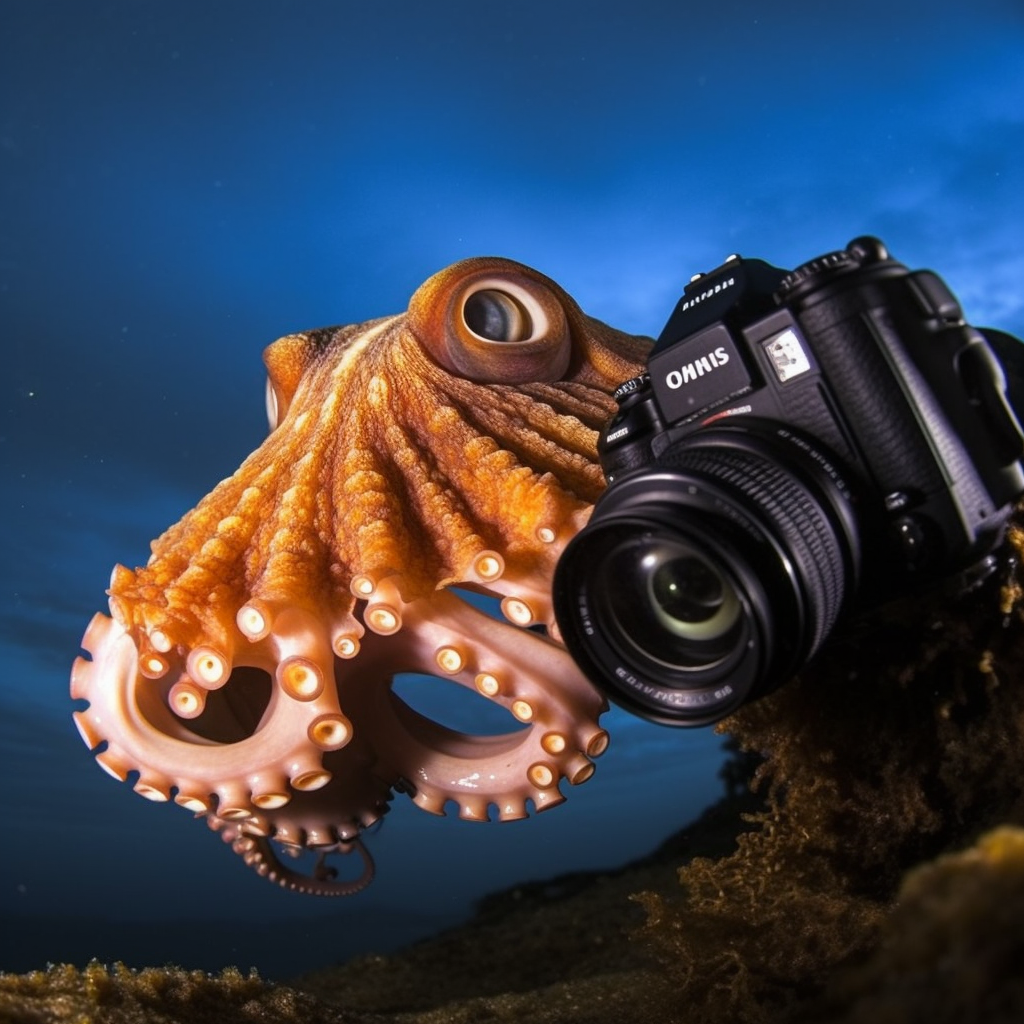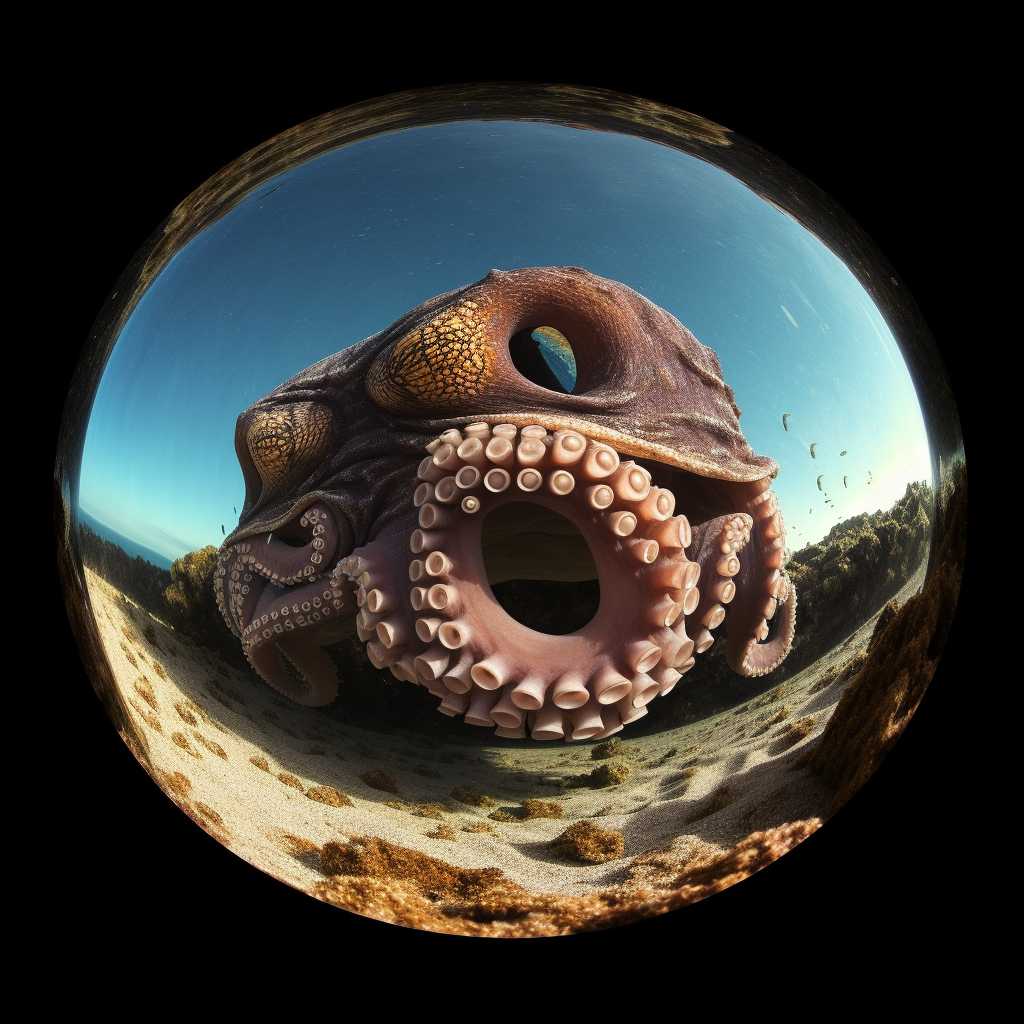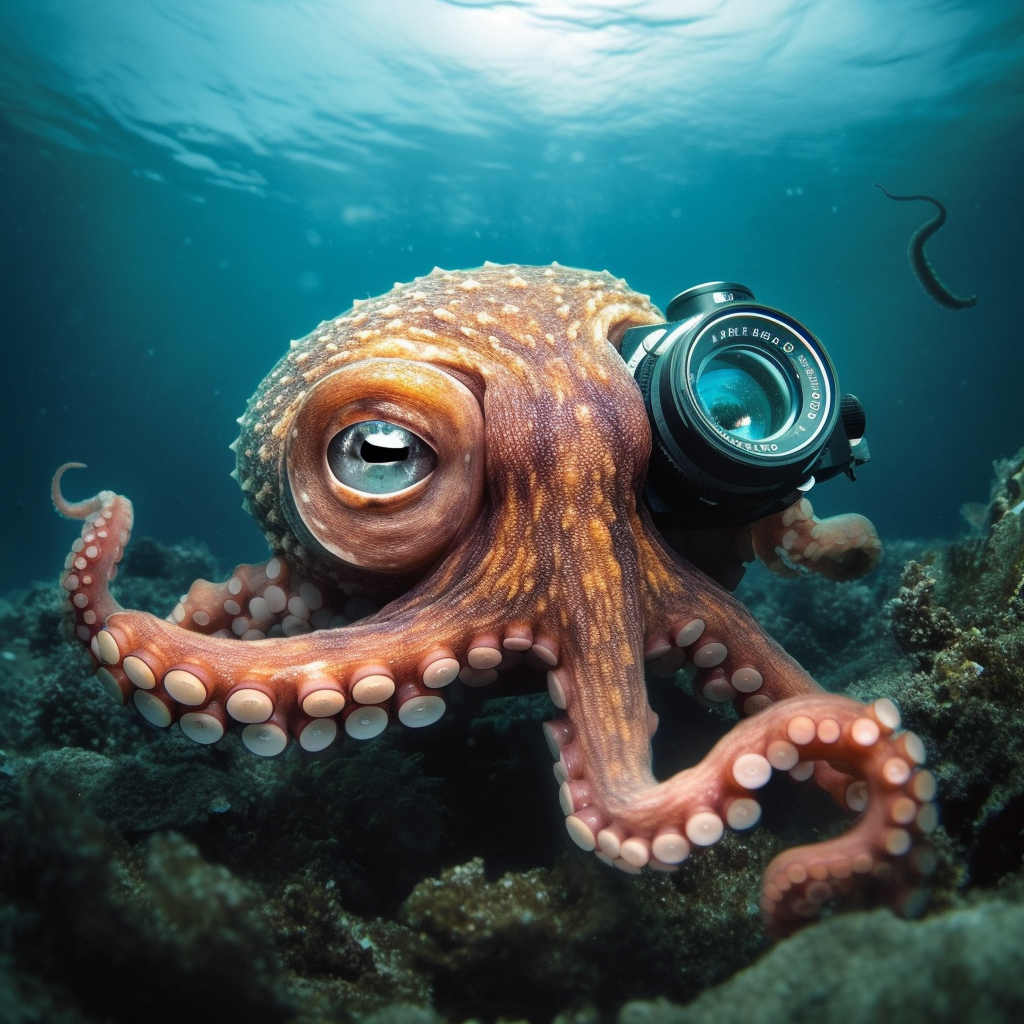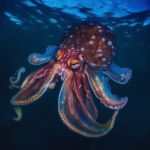Octopuses are fascinating creatures that have captured the imagination of humans for centuries. With their unique appearance, intelligence, and ability to change color and shape, they are often seen as mysterious and enigmatic. However, one question that often arises is whether octopuses are dangerous. In this article, we will explore the various aspects of octopus behavior and anatomy to determine if they pose a threat to humans. We will delve into their venomous capabilities, defensive mechanisms, and encounters with humans to gain a better understanding of whether octopuses should be considered dangerous. So, let’s dive into the world of octopuses and uncover the truth behind their reputation.
Key Takeaways
- Octopuses can be dangerous due to their venomous bites and ability to inject venom.
- Some species of octopuses are known to be aggressive and may attack humans if provoked.
- It is important to exercise caution and respect when interacting with octopuses in their natural habitat.
Understanding Octopuses: A General Overview
Octopuses are fascinating creatures that inhabit the world’s oceans. With their unique appearance and remarkable abilities, they have captured the curiosity of scientists and the imagination of people around the globe. In this section, we will explore some interesting aspects of octopuses, including the location of their brains and hearts, as well as where they can be found.
A. Where are Octopuses’ Brains and Hearts?
Octopuses possess highly developed nervous systems, allowing them to exhibit complex behaviors and problem-solving skills. Their brains are located in their heads, just like in most other animals. However, what sets octopuses apart is that two-thirds of their neurons are found in their arms rather than their brains. This unique distribution of neurons enables their arms to function almost independently, granting them incredible dexterity and the ability to perform intricate tasks.
As for their hearts, octopuses have three of them! Two hearts pump blood to the gills, where oxygen is obtained, while the third heart circulates oxygenated blood throughout the rest of the body. This efficient cardiovascular system ensures that oxygen reaches all the octopus’s tissues, allowing them to thrive in their marine environment.
B. Where are Octopuses Harvested?
Octopuses can be found in various parts of the world, inhabiting both shallow coastal waters and the depths of the open ocean. They are particularly abundant in the Pacific Ocean, where they have a diverse range of species. The Pacific octopus, for example, is known for its intelligence and adaptability.
Octopuses are harvested for various purposes, including scientific research, aquarium exhibits, and culinary delicacies. In some cultures, octopus is considered a delicacy and is used in traditional dishes. However, it is important to note that sustainable fishing practices should be followed to ensure the long-term survival of octopus populations.
In conclusion, octopuses are remarkable creatures with complex nervous systems and unique anatomical features. Their brains and hearts are located in their heads, with the majority of their neurons distributed throughout their arms. Octopuses can be found in different parts of the world, with the Pacific Ocean being particularly rich in species. While they are harvested for various purposes, it is crucial to prioritize sustainable practices to protect these fascinating creatures for future generations to appreciate and study.
Are Octopuses Dangerous?

Octopuses are fascinating creatures that inhabit the world’s oceans, captivating both scientists and curious minds alike. With their unique abilities and mysterious behavior, it’s natural to wonder if these creatures are dangerous. In this section, we will explore the potential dangers associated with octopuses and shed light on their interactions with humans and divers.
A. Why are Octopuses Dangerous?
Octopuses have a reputation for being dangerous, but it’s important to understand the reasons behind this perception. While not all octopuses are inherently dangerous, some species possess characteristics that can pose a threat to their surroundings.
-
Venomous Octopuses: Certain species of octopuses, such as the blue-ringed octopus, are venomous. Their venom contains powerful neurotoxins that can cause paralysis and even death in humans. It’s crucial to exercise caution when encountering these species, as their bites can be life-threatening.
-
Octopus Defense Mechanisms: Octopuses have evolved various defense mechanisms to protect themselves from predators. When threatened, they can release ink to create a cloud of confusion, allowing them to escape from potential harm. Additionally, some octopuses possess sharp beaks that they can use to bite if they feel cornered or provoked.
B. How are Octopuses Dangerous?
Octopuses can be dangerous in several ways, depending on the circumstances and the species involved. Understanding their potential dangers can help individuals take appropriate precautions when interacting with these creatures.
-
Octopus Bites: While octopus bites are not common, they can occur if the creature feels threatened or provoked. Some species, like the giant Pacific octopus, have powerful beaks that can deliver a painful bite. It’s important to remember that octopuses generally prefer to avoid confrontation and will only resort to biting as a last resort.
-
Ink as a Defense Mechanism: As mentioned earlier, octopuses have the ability to release ink as a defense mechanism. While this may not directly harm humans, it can create a temporary distraction, making it difficult to navigate or locate the octopus. This can be particularly dangerous for divers who rely on clear visibility underwater.
C. Are Octopuses Dangerous to Humans?
In general, octopuses are not considered a significant threat to humans. They are intelligent creatures that prefer to avoid confrontation and will typically retreat or camouflage themselves when they sense danger. However, it’s essential to exercise caution and respect their space when encountering them in their natural habitat.
-
Rare Human-Octopus Interactions: Instances of octopuses causing harm to humans are relatively rare. Most encounters between humans and octopuses are peaceful, with the creatures displaying curiosity rather than aggression. It’s crucial to approach octopuses with respect and avoid any actions that may provoke them.
-
Safety Precautions: To ensure a safe interaction with octopuses, it’s advisable to follow a few safety precautions. These include maintaining a respectful distance, refraining from touching or cornering the octopus, and avoiding sudden movements that may startle or agitate the creature. By adhering to these guidelines, the risk of any negative interactions can be minimized.
D. Are Octopuses Dangerous to Divers?
Divers, who often explore the depths of the ocean, may encounter octopuses during their underwater adventures. While octopuses generally pose little threat to divers, it’s essential to be aware of potential risks and take appropriate precautions.
-
Octopus Hunting Techniques: Octopuses are skilled hunters and can use their camouflage abilities to surprise their prey. Divers should be cautious not to mistake an octopus for a rock or coral, as they may inadvertently disturb the creature, leading to defensive behaviors.
-
Octopus Safety Precautions: When diving in areas known to have octopuses, it’s advisable to maintain a respectful distance and avoid any actions that may provoke or startle the creatures. By observing octopuses from a distance and allowing them their space, divers can enjoy their encounters without putting themselves or the octopuses at risk.
In conclusion, while octopuses can possess certain characteristics that may make them potentially dangerous, they generally prefer to avoid confrontation and will only resort to defensive behaviors if they feel threatened. By understanding their behavior and taking appropriate precautions, humans and divers can coexist peacefully with these fascinating creatures of the sea.
The Dangerous Octopuses: A Closer Look

A. Are Blanket Octopuses Dangerous?
Blanket octopuses, also known as Tremoctopus, are fascinating creatures that inhabit the open ocean. While they may not pose a direct threat to humans, they have some intriguing defense mechanisms that make them a force to be reckoned with.
One of the most remarkable features of the blanket octopus is the striking sexual dimorphism between males and females. The females can grow up to six feet long, while the males are significantly smaller, measuring only a few centimeters. This size difference is crucial when it comes to their potential danger to humans.
The females of the species possess a unique adaptation that sets them apart from other octopuses. They have long, flowing webbing between their arms, resembling a blanket, hence their name. This webbing can be extended and manipulated to create an intimidating display. When threatened, the female blanket octopus unfurls her webbing, making herself appear much larger and more menacing.
Despite their impressive appearance, blanket octopuses are generally not aggressive towards humans. They are primarily found in deep waters, far away from coastal areas where human encounters are less likely. However, if provoked or cornered, they may resort to defensive behaviors, such as ink release or tentacle flailing. It is important to respect their space and observe them from a safe distance to avoid any potential harm.
B. Why are Blue-Ringed Octopuses Dangerous?
The blue-ringed octopus, also known as Hapalochlaena, is widely regarded as one of the most venomous creatures in the ocean. Despite their small size, these octopuses pack a potent punch with their neurotoxic venom.
Blue-ringed octopuses are typically found in the warm waters of the Pacific and Indian Oceans, particularly around Australia and Indonesia. They are known for their vibrant blue rings that appear as a warning signal when they feel threatened or agitated. These rings serve as a visual deterrent, indicating their potential danger.
The venom of the blue-ringed octopus contains tetrodotoxin, a powerful neurotoxin that can paralyze their prey and pose a significant risk to humans. Although they are not naturally aggressive, they will bite if they feel cornered or provoked. Their bite is often painless, which makes it even more dangerous, as victims may not realize they have been envenomated until symptoms start to manifest.
The effects of a blue-ringed octopus bite can be severe, leading to muscle weakness, respiratory distress, and even paralysis. Immediate medical attention is crucial in such cases, as the venom can be life-threatening. It is essential to exercise caution and avoid handling or disturbing these beautiful yet dangerous creatures to prevent any potential harm.
C. Are Flapjack Octopuses Dangerous?
Flapjack octopuses, also known as Opisthoteuthis, are unique and intriguing creatures that inhabit the deep sea. While they may not be inherently dangerous to humans, their behavior and appearance make them a fascinating subject of study.
Flapjack octopuses have a distinct flattened body shape, resembling a pancake or a UFO. They are often found resting on the seafloor, using their webbed arms to glide and hover above the surface. This peculiar adaptation allows them to move gracefully through the water, resembling a delicate ballet performance.
These octopuses primarily feed on small crustaceans and other invertebrates, using their arms to capture their prey. They are not known to exhibit aggressive behaviors towards humans and are generally considered harmless. However, it is important to remember that they are wild animals and should be observed from a safe distance to avoid any accidental harm.
D. Are Dumbo Octopuses Dangerous?
Dumbo octopuses, also known as Grimpoteuthis, are enchanting creatures that inhabit the deep sea. With their large, ear-like fins and gentle demeanor, they are often regarded as some of the most endearing octopuses in the ocean. However, their harmless appearance does not necessarily mean they are completely safe.
Dumbo octopuses are not known to be dangerous or aggressive towards humans. They are primarily scavengers, feeding on the remains of dead animals that sink to the ocean floor. Their diet consists of small crustaceans, worms, and other organic matter found in the deep sea.
While they may not pose a direct threat, it is important to exercise caution when encountering any wild animal. Dumbo octopuses have delicate bodies and should not be handled or disturbed. It is best to observe them from a distance and appreciate their beauty and unique adaptations without interfering with their natural habitat.
In conclusion, while some octopus species can be potentially dangerous, most are not inherently aggressive towards humans. It is important to respect their space and observe them from a safe distance to avoid any potential harm. By understanding their behavior and taking necessary precautions, we can coexist with these incredible creatures and appreciate the wonders of the ocean.
Are Octopuses Poisonous?
Octopuses are fascinating creatures that inhabit the depths of the ocean. With their unique appearance and incredible intelligence, they have captivated the curiosity of scientists and the general public alike. One question that often arises when discussing octopuses is whether they are poisonous. In this section, we will explore the topic of octopus toxicity and its implications for humans.
A. Are Octopuses Poisonous to Humans?
When it comes to octopuses, the question of toxicity is often raised due to their ability to defend themselves against potential threats. While there are some species of octopuses that possess venom, the majority of them are not harmful to humans. In fact, most octopuses are completely harmless and pose no danger to us.
However, it is important to note that there are a few exceptions to this rule. The blue-ringed octopus, for example, is known to be highly venomous and can deliver a potentially lethal bite. Found primarily in the waters of the Pacific and Indian Oceans, this small but dangerous creature should be approached with caution.
B. How are Octopuses Poisonous?
For those octopuses that do possess venom, it serves as a defense mechanism rather than a means of hunting prey. The venom is typically delivered through a bite, and its effects can vary depending on the species. Some octopuses have venom that primarily affects their prey, while others have venom that can cause discomfort or pain to humans.
It is worth noting that octopuses are not aggressive towards humans and will only use their venomous bite as a last resort when they feel threatened. Their primary goal is to avoid confrontation and escape from potential dangers. Therefore, the chances of encountering a venomous octopus and being bitten are extremely rare.
C. Are Octopuses Dangerous to Eat?
Octopuses are a popular delicacy in many parts of the world, and they are consumed in various forms, such as sushi, sashimi, and grilled dishes. When prepared properly, octopus is safe to eat and can be enjoyed as part of a balanced diet.
However, it is important to note that octopuses can pose a potential danger if not handled and cooked correctly. Some species of octopuses contain toxins that can cause illness or even death if consumed raw or undercooked. Therefore, it is crucial to ensure that octopus is properly cleaned, cooked, and handled to eliminate any potential risks.
In conclusion, while there are some species of octopuses that possess venom and can be dangerous, the majority of octopuses are harmless to humans. It is important to exercise caution when encountering any wild animal, including octopuses, and to respect their natural habitats. When it comes to consuming octopus, proper preparation and cooking techniques are essential to ensure safety.
Comparing Octopuses and Cats: A Study in Danger
A. How are Cats Dangerous to Humans?
Cats, beloved pets in many households, can pose certain dangers to humans. While they are generally docile and friendly, there are a few ways in which cats can be potentially harmful.
-
Scratches: Cats have sharp claws that they use for various purposes, including self-defense. If a cat feels threatened or cornered, it may scratch to protect itself. These scratches can break the skin and potentially lead to infections.
-
Bites: Although cats typically bite as a last resort, their bites can be painful and may also lead to infections. It is important to note that cat bites have a higher risk of infection compared to dog bites due to the bacteria present in their mouths.
-
Allergies: Some individuals may be allergic to cats. Cat allergies can cause symptoms such as sneezing, itchy eyes, and respiratory issues. In severe cases, they may trigger asthma attacks.
-
Parasites: Cats can carry parasites such as fleas and ticks, which can be transmitted to humans. These parasites can cause itching, skin irritation, and even transmit diseases.
B. Are Cats Dangerous to Newborns, Babies, and During Pregnancy?
Cats are generally safe around newborns, babies, and pregnant women. However, there are a few precautions to consider:
-
Toxoplasmosis: Pregnant women should be cautious about handling cat litter boxes, as cats can be carriers of the Toxoplasma gondii parasite. This parasite can cause toxoplasmosis, which can be harmful to the unborn baby. It is advisable for pregnant women to delegate the task of cleaning the litter box to someone else.
-
Scratches and Bites: Newborns and babies have delicate skin, making them more susceptible to scratches and bites. It is important to supervise interactions between cats and young children to prevent any accidental injuries.
-
Allergies: Babies can develop allergies to cats. If a baby shows signs of allergies such as persistent sneezing, coughing, or skin rashes, it is recommended to consult a healthcare professional.
C. Are Cats Dangerous to Rabbits and Hedgehogs?
Cats are natural predators, and their hunting instincts can pose a threat to small animals like rabbits and hedgehogs. It is essential to keep pet rabbits and hedgehogs away from cats to ensure their safety. Cats may view these smaller animals as prey and may attempt to chase or attack them.
D. How are Pallas Cats Dangerous?
Pallas cats, also known as manuls, are wild cats native to Central Asia. While they are not typically dangerous to humans, there are a few factors to consider:
-
Aggression: Pallas cats have a reputation for being more aggressive compared to domesticated cats. If provoked or cornered, they may exhibit defensive behaviors, including scratching and biting.
-
Habitat: Pallas cats inhabit remote and rugged regions, making direct encounters with humans rare. However, if someone were to venture into their habitat without proper precautions, there is a possibility of a defensive encounter.
-
Conservation Status: Pallas cats are listed as Near Threatened by the International Union for Conservation of Nature (IUCN). It is important to respect their natural habitat and not disturb or harm them.
In conclusion, while cats can pose certain dangers to humans, it is important to remember that most cats are domesticated pets and pose minimal risks when properly cared for. Understanding their behavior and taking necessary precautions can help ensure a safe and harmonious coexistence between cats and humans.
Squids: Another Sea Creature to Consider

A. Are Squids Dangerous?
When it comes to sea creatures, squids are often associated with mystery and intrigue. With their long tentacles and large eyes, they have captured the imagination of many. But are squids dangerous? Let’s delve into this question and explore the nature of these fascinating creatures.
B. Why are Squids Dangerous?
Squids, like their close relatives the octopuses, have a reputation for being formidable predators. While they may not pose a direct threat to humans, there are a few reasons why squids can be considered dangerous in certain circumstances.
-
Size and Strength: Some species of squids, such as the giant squid, can grow to enormous sizes, reaching lengths of up to 43 feet. Their large size and muscular bodies enable them to overpower their prey, which can include fish, crustaceans, and even other squids.
-
Beak and Tentacles: Squids possess a sharp beak that they use to tear apart their prey. This beak can cause injury to humans if they come into contact with it. Additionally, squids have long, powerful tentacles armed with suckers that can latch onto their prey. While these suckers may not harm humans, they can leave behind marks or bruises.
-
Ink Defense Mechanism: Like octopuses, squids have the ability to release a cloud of ink as a defense mechanism. This ink can temporarily impair the vision of predators or potential threats, allowing the squid to escape. While not directly dangerous to humans, this behavior can be startling if encountered unexpectedly.
C. Are Squids Dangerous to Humans?
While squids have the potential to be dangerous, it is important to note that they generally do not pose a significant threat to humans. Squid attacks on humans are extremely rare, and most encounters with squids occur in the wild, where they tend to avoid human interaction.
It is worth mentioning that some species of squids, such as the Humboldt squid, have been known to exhibit more aggressive behavior. These squids, also known as “red devils,” have been reported to swarm and bite divers in certain areas of the Pacific Ocean. However, such encounters are still relatively uncommon.
In conclusion, while squids can be considered dangerous due to their size, beak, and ink defense mechanism, they are not typically a threat to humans. It is important to respect these creatures and observe them from a safe distance when encountering them in their natural habitat. By understanding their behavior and taking necessary precautions, we can appreciate the beauty and wonder of squids without undue concern for our safety. Conclusion
In conclusion, while octopuses are fascinating creatures with incredible abilities, they are generally not dangerous to humans. Despite their reputation as mysterious and potentially harmful creatures, octopuses are more likely to use their intelligence and agility to avoid confrontation rather than attack. However, it is important to remember that like any wild animal, octopuses may become defensive if they feel threatened or cornered. It is always best to observe these creatures from a safe distance and respect their natural habitat. By understanding and appreciating these remarkable creatures, we can foster a greater sense of coexistence and appreciation for the diverse marine life that inhabits our oceans.
Frequently Asked Questions
Q1: How are cats dangerous to humans?
A1: While cats are generally safe pets, they can pose certain risks to humans. These include the transmission of diseases such as toxoplasmosis or bacterial infections through scratches or bites. Cats may also trigger allergic reactions in some individuals.
Q2: Are octopus harmful to humans?
A2: Most octopus species are not harmful to humans. However, some, like the blue-ringed octopus, are venomous and can pose a threat if they bite. It’s always important to respect these creatures and their space in their natural habitats.
Q3: Why are blue ringed octopus dangerous?
A3: Blue-ringed octopuses are considered dangerous due to their venom, which is potent enough to kill humans. They use this as a defense mechanism when they feel threatened. The venom can cause paralysis and respiratory failure.
Q4: Are cats dangerous to newborns?
A4: Cats are not inherently dangerous to newborns, but it’s important to supervise any interactions between a cat and a baby. Cats may unintentionally scratch or bite if they feel threatened or scared. Also, there is a small risk of disease transmission.
Q5: Are octopus dangerous to divers?
A5: Most octopus species are not dangerous to divers. However, certain species like the blue-ringed octopus can be dangerous if they feel threatened and bite. Divers should always respect marine life and keep a safe distance.
Q6: Are octopus dangerous to touch?
A6: Most octopus species are not dangerous to touch. However, some species like the blue-ringed octopus can deliver a venomous bite if they feel threatened. It’s always best to observe these fascinating creatures without touching them.
Q7: Are cats dangerous to rabbits?
A7: Cats are predators by nature and may pose a threat to smaller animals like rabbits. It’s important to supervise any interactions between cats and rabbits to ensure the safety of both animals.
Q8: Are octopus poisonous to humans?
A8: Most octopus species are not poisonous to humans. However, certain species like the blue-ringed octopus carry a potent venom that can be harmful if they bite.
Q9: Are cats dangerous to babies?
A9: Cats are not inherently dangerous to babies, but it’s important to supervise any interactions between a cat and a baby. Cats may unintentionally scratch or bite if they feel threatened or scared.
Q10: Are octopus dangerous to eat?
A10: Octopus is not dangerous to eat if it is properly prepared and cooked. However, some people may be allergic to octopus, and there is also a risk of foodborne illnesses if the octopus is not handled or cooked properly.




